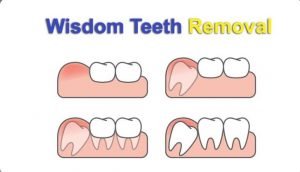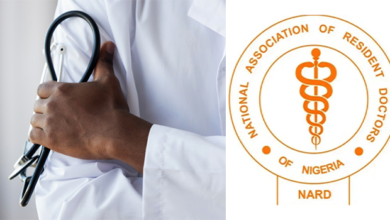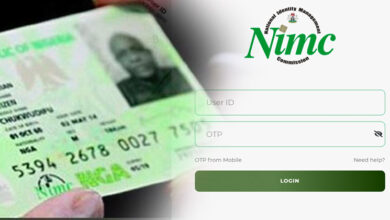DO I NEED MY WISDOM TEETH REMOVED QUIZ
Are you interested in knowing more or wondering about do I need my wisdom teeth removed quiz ? If so, then you are on the right page. Feel relaxed and make sure you read the article to the end.

DO I NEED MY WISDOM TEETH REMOVED QUIZ
Wisdom teeth are the third and last set of molars that grow during the earlier stage of human development. However, today, thanks to advanced oral care and hygiene, they are merely obsolete since our molars are all that are necessary. But when wisdom teeth begin to emerge, they can shift and impact the alignment of your teeth and jaw. That’s why extracting them is important.
Maintaining regular checkups with your Ottawa dentist at Rockcliffe Dental & Denture Centre will help monitor the development of them, but in the meantime, we are going to talk about some signs that you need to remove wisdom teeth.
DO YOU HAVE TO REMOVE WISDOM TEETH?
In general, oral surgeons and dentists recommend having wisdom teeth removed only if they cause problems or are likely to cause problems in the future. To this day, there are no scientifically proven benefits of pulling your last set of molars out if they don’t cause any problems. In addition, wisdom tooth removal is unpleasant and may lead to undesirable side effects.
When Wisdom Teeth Do NOT Have to Be Removed?
You may keep your wisdom teeth or the third molars at the very back of your mouth if they are:
Positioned and biting correctly with the opposite teeth
Healthy
Fully erupted (grow in completely)
Able to be cleaned thoroughly as part of daily dental hygiene.
DO I NEED MY WISDOM TEETH REMOVED QUIZ
When to Get Your Wisdom Teeth Out
However, many times, wisdom teeth grow at various angles, even horizontally, or don’t have enough room to come in fully. Your Ottawa dentist may recommend that you have your wisdom teeth removed as soon as possible if they:
Emerge partially through the gums. In that case, the area would be hard to see and clean properly. This will attract bacteria that can cause oral infection and gum disease.
Remain completely hidden within the gums. If your wisdom can’t emerge normally, they often become impacted within your jaw. This could lead to an infection or a cyst that could damage adjacent teeth or the supporting jaw bone.
Crowd nearby teeth. If your wisdom teeth don’t have enough room to grow in properly, they can crowd or damage neighbouring teeth.
Some dentists believe that you have to remove wisdom teeth before they fully emerge. Dentists also recommend getting them out at a younger age, when the recovery is faster and easier and before the bone and the tooth roots are completely formed. This is why many young people choose to have their wisdom teeth pulled even before they cause any problems.
DO I NEED MY WISDOM TEETH REMOVED QUIZ
What Problems Can Come with Wisdom Teeth?
When wisdom teeth come in (“erupt”) through your jawline, several things can go wrong:
They may only come partway through your gums, causing a flap of gum tissue to cover them. Food and germs can get trapped under the flap and cause your gums to become red, swollen, and painful.
Your jaw may not be large enough for them and they can be unable to break through the gums. This is called an impaction.
They may cause serious problems, including infection, damage to other teeth and bone, or cysts.
Your wisdom teeth may come in at an awkward angle, with the top of the tooth facing forward, backward, or to either side.
How Long Does the Extraction Process Take?
For a fully erupted tooth in the upper jaw, it normally takes around 35 min depending on the case. Sometimes, lower teeth take more time.
Impacted teeth take longer because the bone surrounding the tooth needs to be opened first. This normally takes around 45 min to one hour.
Of course, each case is different, so ask your DentArana dentist!
If you feel sensitivity, pain, or swelling near the back of your jaw, you may have a problem with your wisdom teeth. If so, see your dentist immediately!
After Extraction
Recovery typically lasts a few days. The following tips will help speed your recovery.
Periodically bite gently on a gauze pad, and change pads as they become soaked with blood. Call us if you have bleeding 24 hours after your surgery.
Do not lie flat. This may prolong bleeding. Prop up your head with pillows.
Avoid physical activity – it may increase bleeding.
Do not use a straw for the first few days, it can also increase bleeding.
Eat soft foods, such as gelatin, pudding, or a thin soup. Add solid foods to your diet as healing progresses.
READ ALSO:DO I NEED A ROOT CANAL QUIZ?
After the first day, gently rinse your mouth with warm salt water several times a day to reduce swelling and relieve pain.
Do not smoke for at least 24 hours after your surgery.
Continue to brush your teeth and tongue carefully.
Your dentist will remove the stitches after a few days, if needed.
-
1.Are you experiencing severe pain in teeth?
-
A.
Yes, it is unbearable.
-
B.
It is severe, and going to other body parts too.
-
C.
The pain is too much, but I am somehow bear it.
-
D.
A feeling of pain is there.
-
-
2.Have you been complaining about repeated infection of soft tissue behind your lower last tooth?
-
A.
It happens sometimes, but not always.
-
B.
Yes, it is always paining there.
-
C.
Yes, a lot of infection is there. I can feel it.
-
D.
A mild pain is always there.
-
-
3.Are your experiencing any kind of fluid-filled sacs (cysts) in your last tooth?
-
A.
Yes, it is there. I got my tooth checked by a dentist.
-
B.
Yes, I always feel something painful in my last tooth.
-
C.
I feel some pain all the time.
-
D.
No, it is just pain.
-
-
4.Is your wisdom tooth damaging your other teeth?
-
A.
Yes, it is causing cavities.
-
B.
The pain is spreading everywhere in the jaws.
-
C.
I think it is spoiling other teeth.
-
D.
No, there is only pain in the last tooth.
-
-
5.Have you got tumor symptoms in your reports?
-
A.
Yes, my doctor has told me that.
-
B.
There is something very painful in my mouth.
-
C.
My doctor has asked me to get my teeth tested.
-
D.
No, it is a normal pain.
-
-
6.Are you experiencing any gum disease?
-
A.
Yes, it is severe and getting worse.
-
B.
Yes, gum disease is there in my teeth.
-
C.
I think my teeth is having some gum issue.
-
D.
No, only pain is there.
-
-
7.Is there an extensive tooth decay in your mouth?
-
A.
Yes, it is very bad.
-
B.
It is getting worse.
-
C.
I think it can be controlled.
-
D.
No, nothing like tooth decay.
-
-
8.Do you experience earaches and headaches?
-
A.
Yes, I do and it is severe.
-
B.
Only earaches, but it is severe.
-
C.
It occurs sometimes.
-
D.
I feel pain only in my mouth and teeth.
-
-
9.Do you feel stiffness in your jaw?
-
A.
Yes, it is stiff all the time.
-
B.
I feel stiffness.
-
C.
Sometimes
-
D.
No, there is no stiffness.
-
-
10.Do you have crooked or overcrowded teeth?
-
A.
Yes, I have overlapping teeth.
-
B.
I have a few crooked teeth.
-
C.
I have cavities.
-
D.
My teeth structure is fine.
Your options
-
- Have your wisdom teeth removed.
- Don’t have your wisdom teeth removed.
- Key points to remember
- Have your dentist check your wisdom teeth if you’re 16 to 19 years old.
Your dentist may recommend that you have your wisdom teeth removed if they cause pain or an infection, crowd other teeth, or get stuck (impacted) and can’t break through your gums.
Some dentists and oral surgeons think it’s best to have impacted wisdom teeth removed (extracted) before you’re 20 years old, because it’s easier to take them out when the roots and bones of your teeth are softer and not fully formed. And when you’re younger, you tend to heal faster.
You may never have any problems with your wisdom teeth, especially if you’re already older than 30.
Wisdom teeth that are healthy and come in properly don’t cause problems.







